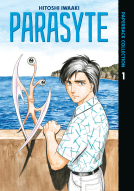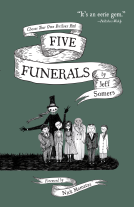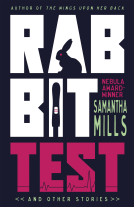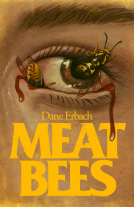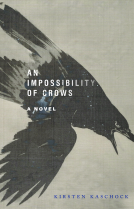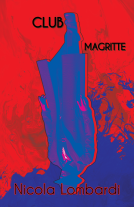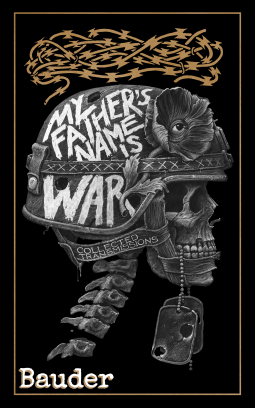
My Father's Name Is War
Collected Transmissions
by Bauder
This title was previously available on NetGalley and is now archived.
Send NetGalley books directly to your Kindle or Kindle app
1
To read on a Kindle or Kindle app, please add kindle@netgalley.com as an approved email address to receive files in your Amazon account. Click here for step-by-step instructions.
2
Also find your Kindle email address within your Amazon account, and enter it here.
Pub Date 28 Feb 2025 | Archive Date 9 Mar 2025
Talking about this book? Use #MyFathersNameIsWar #NetGalley. More hashtag tips!
Description
Critics once dismissed The Things They Carried as "too experimental" for war literature-only for it to become a defining work of the Vietnam era. My Father's Name Is War follows in this tradition, refusing to sanitize conflict or glorify sacrifice.
The Global War on Terror did not take place.
These violent hallucinations reveal what did.
Moral injury. Personal legacy. Protracted conflict.
The Global War on Terror Era fostered a wave of anxieties, behaviors, and distorted social norms that now define the U.S. public’s relationships with the military machine, its sustaining culture, and greater Western thought. My Father’s Name Is War: Collected Transmissions is one veteran’s endeavor to document and communicate the nature of these relationships, their impacts on the individual, and their implications for our future.
A futuristic weapons program employs nostalgia and shame to ensure micromanaged compliance on the battlefield. Virtual reality therapy sessions rekindle a longing for wartime in a lost combat veteran. A South Korean magnate’s passion project threatens to upend our ideas of global governance, one interaction at a time. Bauder’s debut short story collection invites readers to examine the complexities of war and its consequences, urging a review and a parting of ways with the gross excesses of the security state.
Collected Transmissions features nine works spanning multiple genres, including science fiction, psychological realism, philosophy, poetry, and horror.
Contents:
1. My Father’s Name Is Forgotten
2. And Hades Followed Him
3. Chasing the Dragon
4. Omertà
5. Non-Combat Related Incident
6. Waidmannsdank
7. That It Was Good
8. Private Passenger
9. My Father’s Name Is War
Excerpt from the included short story Omertà:
“You’re spending your time with the wrong version of me. He needs to know what only you can tell him.”
“What? The truth? That you died for a mistake, a mistake that was written off so an officer could protect their career? You know what I’ll see in your son, right? The gift of the ghost, a man holding all my memories and none of yours. He doesn’t deserve my misplaced anticipation, my hesitant hopes, my association with his old man.”
“What do you mean by that? I wouldn’t have anyone else speak for me.”
“I live out of my car, Kenny, and I can barely manage that.”
Kenny turned to meet Randy’s gaze. “I don’t mean to sound like an asshole, but you’re all jacked up. It pains me to see it.”
“I finally had a chance to visit your grave after I got out. Section Sixty. Another funeral was going on that day, somewhere out among Arlington’s recent expansions. I heard the guns echo off the hill where the rose gardens mark two hundred years. I’ve rejected that salute every day since, rejected the salute of twenty guns while seeking the favor of one.”
Advance Praise
"Bauder sets these nine stories in a variety of wartime settings... but the core narrative of the collection is born out of what's referred to here as the Global War on Terror... The various stories underscore the surrealism of war from the viewpoints of the ordinary people caught up in it—the author states that, among his other reasons for publishing this collection, he intends it to be 'an attack on the pious fetishization of sacrifice.'... Bauder's talent for pacing and ear for sharp twists in dialogue will carry the reader into the weird realities of conflict."
—Kirkus Reviews
"A powerful collection... Its anger constant and at times white hot. My Father’s Name Is War grapples with an individual’s own experience inside and adjacent to the United States war machine, but not without objectivity, resulting in a relentless critique of a manifestly destructive system."
—Independent Book Review
"My Father’s Name Is War is hard-hitting, raw, and at times surreal. While written as military fiction, the situations depicted are realistic, giving rise to the disturbing possibility that much of what has been presented is true. Bauder writes with a fascinating style that is provocative, punchy, and will challenge the reader. However unpalatable the content may be to some, it is an intriguing, perceptive, and thought-provoking work that is highly recommended."
—Readers' Favorite
Available Editions
| EDITION | Ebook |
| ISBN | 9798991841511 |
| PRICE | $4.99 (USD) |
| PAGES | 241 |
Links
Available on NetGalley
Average rating from 26 members
Featured Reviews
Thank you NetGalley, Meconopsis Press, and Bauder for providing me with an early copy of this book!
This book has one of the most interesting formats of anything I've ever read. Bauder presents several short stories, each an extremely detailed allegory dealing with various aspects of warfare and the institution of the state, and then follows them with exceptionally informative passages explaining how each of those things take place in real life and have taken place throughout history. This is, in my opinion, an ingenious way of presenting everything.
The allegorical presentation not only creates a much deeper, more empathetic understanding of the overall concepts, it also means that the reader is going into the nonfiction sections with emotional engagement. By doing so, it ensures that the true understanding of the human cost of all of this is at the forefront; it is impossible to read the nonfiction sections with a flat, distant, academic sense of tragedy that so often is a blight to the effectiveness of these sorts of texts.
I would say this is a must read, especially in the current climate.
The allegories are fabulously written. They have well-developed, complex science fiction settings that are remarkably detailed given the limited length. They invoke a sense of empathy and investment in characters that is quite frankly remarkable for such short stories because the characters are deeply human, flaws and contradictions and all. A short story has never made me cry, until Omertà.
The nonfiction sections were engaging and laid out clearly and concisely and their compliment to each of the allegories is clear. I like to think of myself as someone who's fairly educated in the realm of the state/methods of control/conflict/the military complex because I studied a lot of it in school; this was a more powerful read, and a better educator because of that, than any other piece of reading I have ever had on the subject. So much so that I'm considering emailing my professors to suggest they add it to their reading lists.
I really hope to see more releases from Bauder in the future.
I won’t lie—I knew going in that this wouldn’t be my usual kind of read. But despite that, I found myself completely immersed. Bauder’s writing is exceptional, and I actually hated how on edge I felt during certain moments—proof of just how powerful this collection is.
The level of detail and research behind each story is truly impressive, and the experimental formats and varied narratives fit their respective themes perfectly. Beyond that, the way Bauder crafts tension, emotion, and raw honesty into each piece is nothing short of remarkable. It’s a collection that lingers long after the final page, forcing reflection and discomfort in the best possible way. While this book wasn’t necessarily an enjoyable read in the traditional sense, I can’t point to anything I outright disliked.
Overall, My Father’s Name Is War is a thought-provoking and deeply affecting collection that examines the personal and societal consequences of war. It’s an important, well-executed work, and I look forward to reading more from Bauder in the future.
Thank you to NetGalley for providing a review copy.
This is a very hard-hitting collection of stories (and one poem), all centered around the military. Make no mistake - these are horror stories, although they frequently veer into sci-fi territory as well. The vignettes between the stories hit me just as hard as the stories. 5 stars
My Father's Name is Forgotten ⭐⭐⭐⭐.25
And Hades Followed Him ⭐⭐⭐⭐.5
Chasing the Dragon ⭐⭐⭐⭐.5
Omertá ⭐⭐⭐⭐⭐
Non-Combat Related Incident ⭐⭐⭐⭐
Waidmannsdank ⭐⭐⭐⭐⭐
That It Was Good ⭐⭐⭐.25
Private Passenger ⭐⭐⭐⭐.5
My Father's Name is War ⭐⭐⭐⭐.5
 Veronica C, Reviewer
Veronica C, Reviewer
I did something I don't normally do with ARCs, I read this twice before writing a review. And that, I think was the right choice.
The writing here is so stupidly good and reads as if someone is presenting or talking. That style works so well here and really adds to the gravitas of the topic.
Now a major theme here is who gets to tell stories about war so I'll give you my perspective. I was 11 and living in NJ when the twin towers fell. I had classmates whose parents died; on the planes, in the towers, or as emergency responders. My dad watched the plane hit the second tower and my grandfather had to run from ABC headquarters to his boss's apartment because his car was destroyed. I therefore believed war was not only the right course of action but appropriate as retribution.
I believed that for years until I was at a Goo Goo Dolls concert in long Island and saw Johnny Reznick say fuck George Bush and this hateful war. I thought he was an idiot--our president is beloved, and the war is justified. Then I had friends and classmates serve who told us about the futility of war. About how it wasn't cool or fun like Call of Duty. And how they felt their lives or identities were marred by their actions.
I now, as part of my job, support veterans reentering the workforce after their service. The stories they tell are often not one of valor but one of exclusion and ostracization. Many veterans don't want anyone to know they served because they don't want questions (why yes I have written guidance to employers telling them not to ask if someone killed someone. Because someone ASKED that on a job interview) or don't want to be discriminated against.
I am embarrassed by how long it took me to recognize what we were doing was wrong and how many people were hurt by our actions. I don't know if this book will sway anyone but my God it certainly has something to say. It will grip you close and spit on you. It was spew fire on your ideas.
I can't tell you how much I recommend this book.
 Reviewer 1337996
Reviewer 1337996
I am going to be honest, I judged this book by its cover - that's how I ended up with an eARC (thank you to author, publisher, and netgalley).
I have no regrets in doing so. I am not sure what I expected going in, but this was a heartbreaking, harrowing series of stories (play, poem) dealing with the attitudes and acts surrounding war, patriotism, and the people who are sucked into both. I'm used to breezing through books in a day or two - this is NOT that kind of book. I can't sell it with a few buzzwords and a few relatable character traits, and I think I'd be doing it a disservice to try.
Disclaimer that I am a profoundly stupid woman, but this book was a <i>lot</i>. And I'm very glad to have read it.
